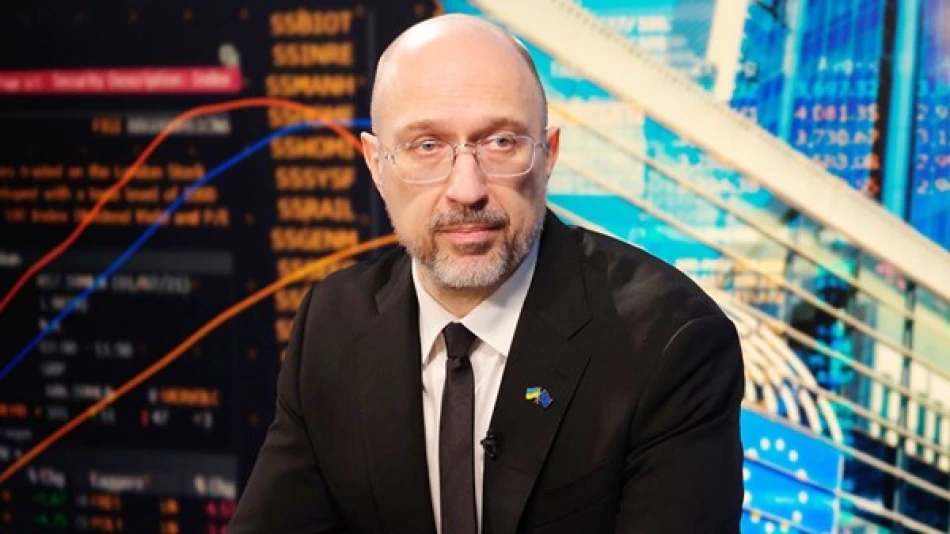
Ukrainian Parliament Votes to Dismiss Prime Minister
Ukraine's Wartime Cabinet Reshuffle: Zelensky Gambles on Economic Leadership as Military Pressure Mounts
Ukraine's parliament voted Wednesday to dismiss Prime Minister Denys Shmyhal in a comprehensive government overhaul aimed at strengthening both economic and military administration as the country enters its third year of war with Russia. The move effectively dissolves the entire cabinet, with First Deputy Prime Minister Yulia Svyrydenko positioned to take the helm while Shmyhal may transition to defense minister—a striking reorganization that signals President Volodymyr Zelensky's shifting priorities amid mounting fiscal and battlefield pressures.
A Strategic Pivot During Critical Wartime
The timing of this cabinet dissolution reveals the complex challenges facing Ukraine's leadership. With Western aid packages facing increasing scrutiny and Ukraine's economy operating under severe wartime constraints, Zelensky appears to be betting on Svyrydenko's economic expertise to navigate the country's financial future. Her background as a former economy minister and current oversight of economic policy makes her a logical choice for managing Ukraine's reconstruction planning and international donor relationships.
Parliament is expected to approve the new cabinet appointments Thursday, creating minimal disruption to government operations during a critical period. This swift transition suggests the reshuffle was carefully orchestrated rather than reactive—a sign of strategic planning rather than crisis management.
Svyrydenko's Economic Credentials Face Ultimate Test
Yulia Svyrydenko brings significant economic policy experience to the role, having previously served as economy minister and played a key role in Ukraine's digital transformation initiatives. Her appointment represents a clear signal that economic recovery and reconstruction planning have become top priorities for the Zelensky administration.
The proposed move of Shmyhal to defense minister is particularly intriguing, as it places someone with extensive administrative experience in charge of military operations. This contrasts with traditional appointments of military figures to defense roles, suggesting Ukraine may be prioritizing logistics, procurement, and administrative efficiency over battlefield experience in its defense leadership.
Wartime Governance Under Pressure
This cabinet reshuffle occurs against a backdrop of evolving international support dynamics. As Ukraine approaches critical decisions about its long-term defense strategy and reconstruction planning, the government faces the dual challenge of maintaining military effectiveness while positioning the country for post-war economic recovery.
The comprehensive nature of the cabinet dissolution—rather than targeted ministerial changes—indicates systemic rather than performance-based motivations. This suggests Zelensky is preparing for a new phase of the conflict that requires different administrative strengths, particularly in economic management and international coordination.
Implications for Ukraine's Strategic Direction
The elevation of economic leadership during wartime reflects broader shifts in how modern conflicts are managed. Ukraine's experience demonstrates that sustained military resistance requires sophisticated economic coordination, international financial management, and reconstruction planning—skills that may be more valuable than traditional political maneuvering.
For international partners, this reshuffle likely signals Ukraine's commitment to institutional stability and professional governance, potentially strengthening arguments for continued long-term support. The smooth transition process and strategic nature of the appointments suggest a government confident in its direction rather than one responding to immediate crises.
Most Viewed News

 Layla Al Mansoori
Layla Al Mansoori






